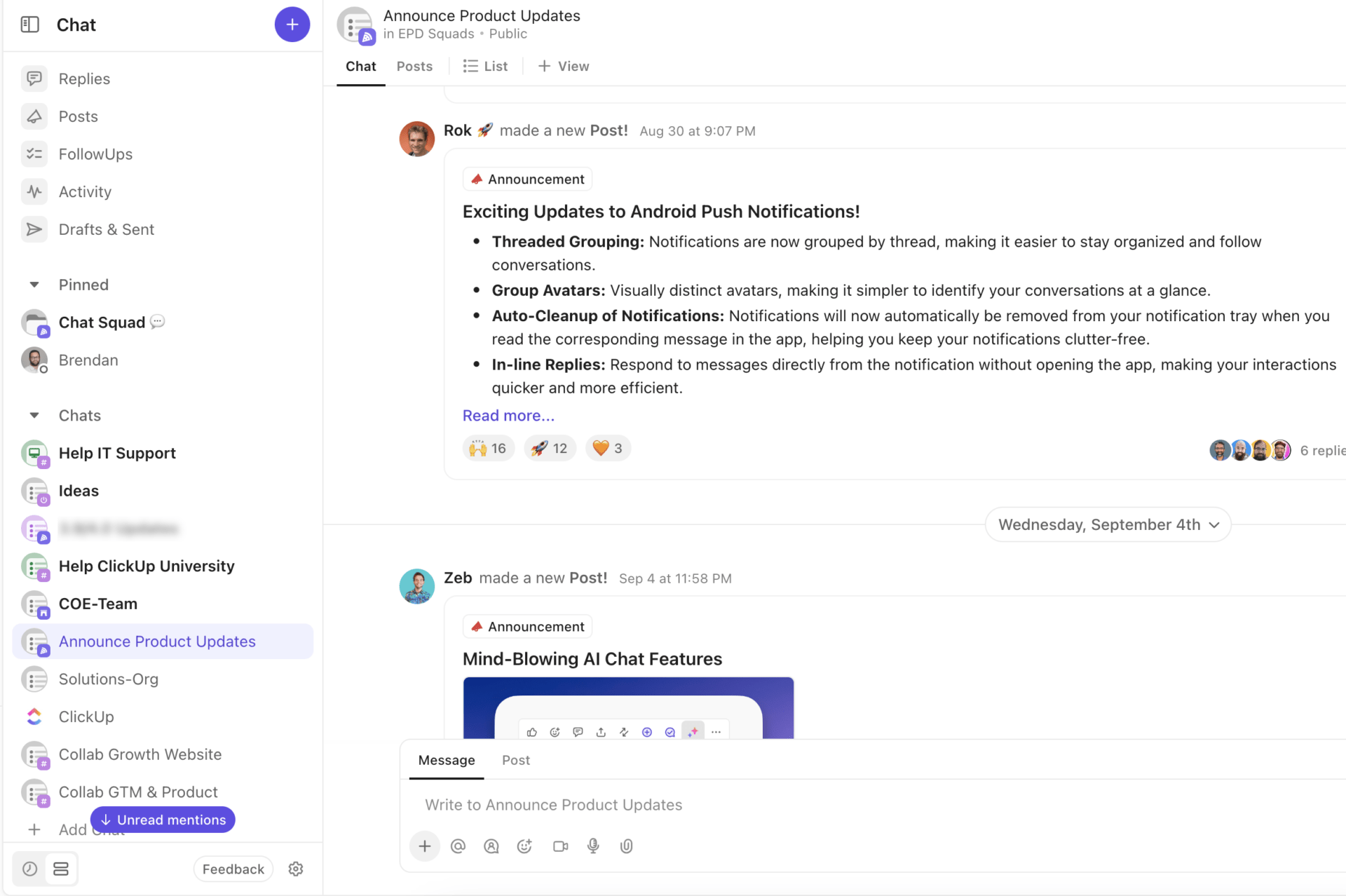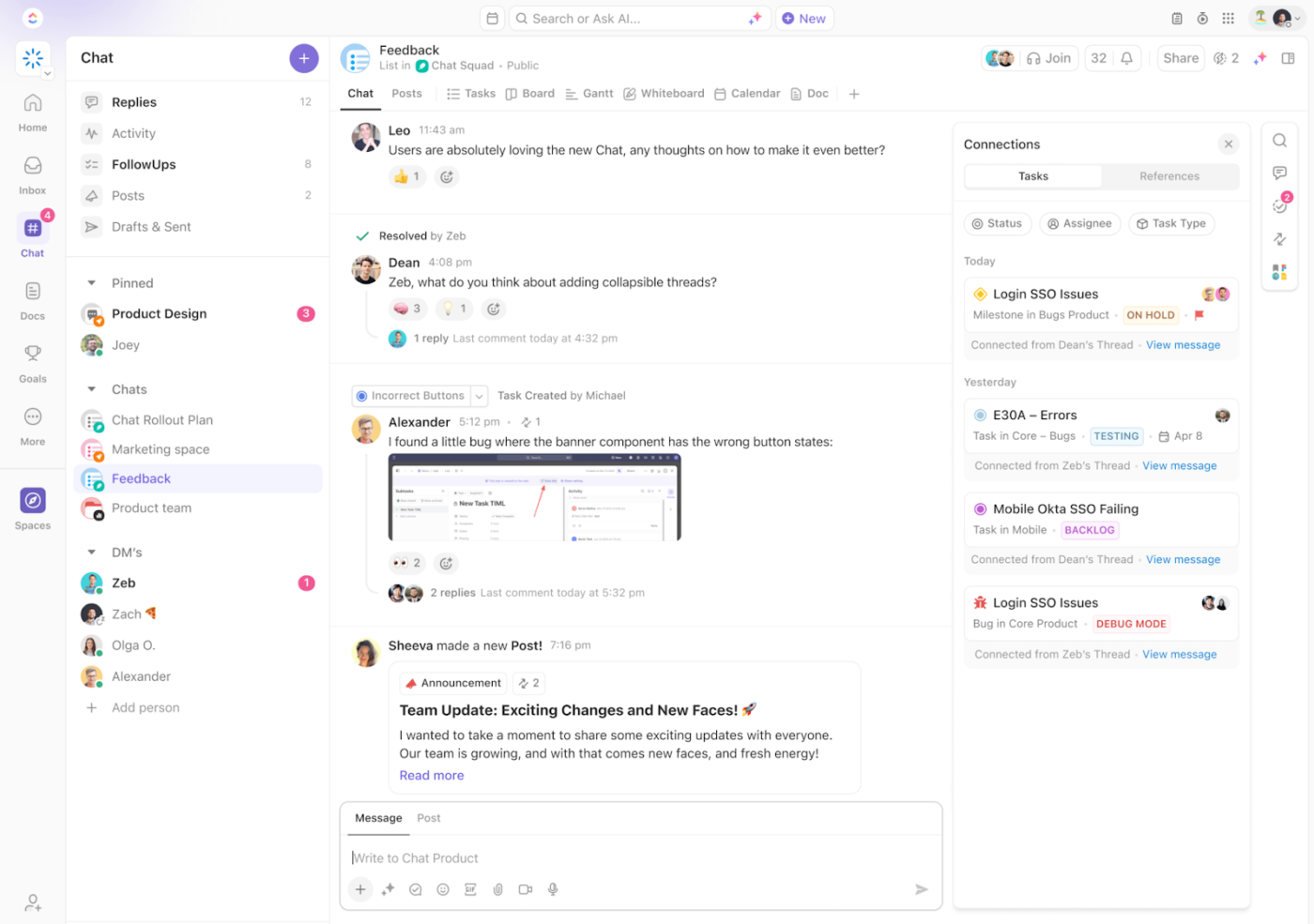15 Fun Communication Games for Teams at Work

Sorry, there were no results found for “”
Sorry, there were no results found for “”
Sorry, there were no results found for “”

Think of your team at work as a well-tuned orchestra. Each musician is playing their part in perfect harmony. But what happens when one instrument is out of sync? The melody falters, the rhythm breaks, and the performance falls flat.
That’s precisely what happens in a workplace when communication isn’t flowing smoothly.
Effective communication is the conductor that keeps your team in sync. It’s what transforms a group of individuals into a high-performing team. In fact, studies show that teams with solid communication are not only more productive but also 4.5 times more likely to retain their employees.
But here’s the challenge: communication doesn’t just happen—it needs to be nurtured. Just as the musicians in an orchestra practice together to play in sync, your team must regularly practice communicating to work better together.
Team-building activities are some of the best exercises for this kind of practice. They help your team members develop interpersonal skills and deeper connections by stepping outside their traditional work environment and engaging in shared experiences.
This article lists 15 fun and engaging communication games that can help your team boost morale and improve communication skills and productivity.
Communication team-building games are essential for all high-performance teams. Let’s look at some games you can play with your in-house and remote teams.
As the title suggests, these games break the ice. They create a relaxed atmosphere and kickstart connections among team members.
This classic icebreaker involves one team member sharing three statements about themselves: two truths and one lie. The other team members take turns guessing which statement is the lie.
It’s a fun and engaging way to learn interesting facts about colleagues while encouraging critical thinking and observation skills.
Example: A team member might say, ‘I’ve skydived, I’m left-handed, and I’ve lived in three different countries.’ Others have to guess which two statements are factual and which one is false.
Important tips:
This energetic icebreaker involves team members standing in a circle and randomly grabbing hands with two people, creating a knot. The winning team is decided by which team untangles the knot without letting go of anyone’s hands.
The game emphasizes teamwork, open communication, and problem-solving skills.
📮ClickUp Insight: A typical knowledge worker has to connect with 6 people on average to get work done. This means reaching out to 6 core connections on a daily basis to gather essential context, align on priorities, and move projects forward.
The struggle is real—constant follow-ups, version confusion, and visibility black holes erode team productivity. 📥 Our State of Workplace Communication Report breaks down the data—and how to keep your team on the same page.
Important tips:
This game involves creating a list of questions or statements starting with ‘Find someone who…’ (e.g., Find someone who has traveled to Europe).
Group members mingle and find someone who matches each statement. It’s a great way to encourage interaction, promote mingling, and learn about colleagues’ experiences and interests.
Important tips:
These games focus on effective speaking, listening, and understanding.
This collaborative communication exercise enables creativity and active listening.
Begin with a single sentence to initiate a narrative. Each team member sequentially adds a sentence, building upon the previous one to create a cohesive story.
The challenge lies in maintaining coherence and adding exciting twists while actively listening to the contributions of others.
This game encourages teamwork, creativity, and building upon others’ ideas.
Example: The first person might say, “Once upon a time, there was a magical unicorn.” The next person might add, “who lived in a rainbow-colored castle.” And so on.
Important tips:

This classic game highlights the potential for miscommunication in verbal communication. It is an in-person game in which a message is whispered from one person to the next in a line. The last person then says the final message aloud.
Often, the original message undergoes significant changes as it travels through the chain, emphasizing the importance of clear and concise communication. This game underscores the challenges of maintaining accuracy in the verbal transmission of messages.
Example: A simple phrase like ‘The quick brown fox jumps over the lazy dog’ can be altered entirely by the time it reaches the end of the line.
Important tips:
This rapid-fire game stimulates quick thinking and creativity. One person says a word, and the next immediately responds with the first word that comes to mind. The chain continues, creating unexpected and often humorous connections.
This game encourages spontaneous thinking, active listening, and thinking on one’s feet.
Example: If the first person says “apple,”‘ the next might respond with “‘red,” followed by “fire engine,” and so forth.
Important tips:
A nonverbal communication game focuses on understanding body language and its impact on communication. This activity encourages observation, interpretation, and expression without the use of spoken words.
Charades is a classic game in which one person acts out a word or phrase while the others guess. The actor must rely solely on body language, facial expressions, and gestures to convey the meaning.
To enhance the experience, consider using props or dividing participants into teams for a competitive element. The key to winning is exaggeration and clarity in the performance.
Example: Acting out ‘riding a bicycle’ would involve mimicking the pedaling motion and balancing gestures
Important tips:

This is a half-verbal, half-nonverbal game emphasizing the importance of clear and concise verbal communication.
One person describes a picture while another tries to draw it without seeing it. The describer must use vivid imagery, descriptive language, and spatial references to convey the image accurately.
The sketcher relies on active listening and visual interpretation to create a representation based on verbal cues.
Example: Describing a complex object like a spaceship requires precise and evocative language to represent it accurately. One person will describe the spacecraft, and the other person will try to draw it according to the instructions and details given by the first person.
Important tips:
Mirror Me is a game that focuses on observation, imitation, and synchronicity. Two people face each other and try to mimic each other’s movements without talking. This exercise enhances nonverbal communication, coordination, and teamwork.
It’s essential to start with simple movements and gradually increase complexity to challenge participants.
Example: One person might start with simple gestures like waving or clapping, and the other must mirror the movements precisely
Important tips:
These games offer a modern approach to developing communication and collaboration between diverse teams by leveraging technology.
This immersive game challenges virtual teams to solve puzzles, crack codes, and find clues to escape a virtual room within a set time limit. It requires critical thinking, communication, and teamwork to overcome obstacles and achieve the goal.
Virtual escape rooms offer a dynamic and engaging way to make teams discuss the problem, collaborate, and solve it.
Important tips:

A digital twist on a classic game, Online Pictionary involves one person drawing while others guess the word or phrase.
This fun game also improves drawing, guessing, and communication skills in a virtual setting. It is a team-building activity that encourages quick thinking, descriptive language, and effective teamwork.
Important tips:
This interactive game tests knowledge and promotes friendly competition.
Teams or individuals answer questions on a specific topic or general knowledge. It improves communication skills, teamwork, and knowledge sharing in a fun and engaging format.
This is a very common (and loved) online communication activity among remote teams.
Important tips:
These games encourage teamwork and critical thinking and require enhanced problem-solving skills.
They also require effective communication, coordination, and creative thinking to overcome challenges and achieve a common goal.
This activity simulates a survival situation, demanding prioritization and resource allocation. Participants must decide on essential items to bring to a deserted island, considering factors such as survival, comfort, and teamwork.
This game builds communication, negotiation, and problem-solving skills. Participants must weigh the importance of different items, justify their choices, and reach a consensus as a team.
Important tips:
This classic challenge requires collaboration, creativity, and structural engineering skills. Teams are given limited materials, such as marshmallows, spaghetti, or index cards, to build the tallest freestanding tower possible within a time constraint.
This game emphasizes teamwork, problem-solving, and adaptability. Participants must experiment with different building techniques, considering weight distribution, stability, and height. Strong teamwork and clear communication are keys to succeeding in this game.
Important tips:
This creative challenge involves building a complex chain reaction of events to accomplish a simple task. Teams must design and construct a machine using various materials and props. This game enables problem-solving, creativity, and teamwork.
Participants must communicate effectively to brainstorm ideas, experiment with designs, and troubleshoot challenges.
Important tips:
ClickUp can be a great collaboration and team-building tool for planning, managing, and conducting the abovementioned games.
Let’s explore how you can leverage its core features to improve your team’s collaboration experience.

ClickUp Whiteboards offers a dynamic and interactive space for teams to collaborate, brainstorm, and visualize ideas. It’s like a virtual canvas for freehand drawing, note-taking, and idea mapping.

ClickUp Docs offers a centralized platform for teams to collaborate on documents, share information, and track progress. It’s a shared workspace for creating, editing, and commenting on documents.

ClickUp Chat is more than just a messaging tool; it’s a dynamic, real-time communication platform for teams to connect, collaborate, and share information. It offers instant messaging, file sharing, and integration with other ClickUp features for effective communication and teamwork.
Note: The Chat in ClickUp is also an effective workplace communication tool for sharing updates, linking resources, and more, bringing all your team communication under one roof.

ClickUp Clips is a powerful screen recording tool for capturing, sharing, and analyzing video content within team collaboration. It provides a simple and faster way to record and share video clips, facilitating quicker knowledge sharing, feedback, and documentation.
ClickUp offers a suite of pre-built templates designed to streamline team communication and manage meetings. These templates provide a structured framework for organizing your team’s interactions and keeping everyone informed and aligned on common goals.
ClickUp’s Communication Plan Template offers a structured framework for communication within teams.
ClickUp’s Team Communication & Meeting Matrix Template offers a powerful tool for enhancing team communication and collaboration. Originally designed to manage routine interactions and meetings, this template can be readily adapted to manage communication specific to team-building activities.
Incorporating games into your workplace is not merely a diversion; it’s a strategic investment in team dynamics.
These 15 games will boost morale and help you meet your team’s communication goals. If you want to provide an enjoyable workplace experience for your team members, look no further than ClickUp.
HR teams worldwide use ClickUp to streamline and improve team communication and collaboration and create memorable employee experiences. Try ClickUp today!
© 2026 ClickUp